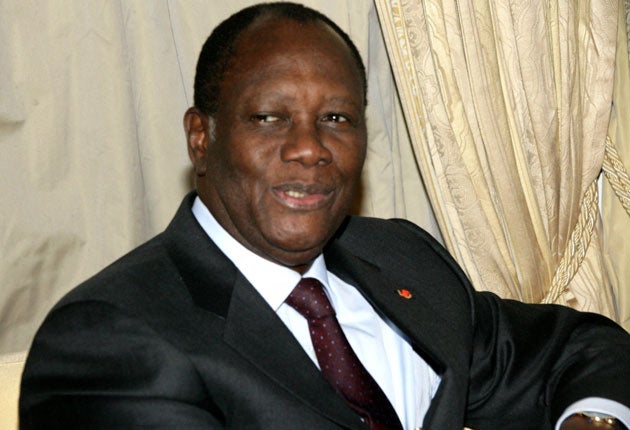Ivory Coast braced for final battle as city falls

Your support helps us to tell the story
From reproductive rights to climate change to Big Tech, The Independent is on the ground when the story is developing. Whether it's investigating the financials of Elon Musk's pro-Trump PAC or producing our latest documentary, 'The A Word', which shines a light on the American women fighting for reproductive rights, we know how important it is to parse out the facts from the messaging.
At such a critical moment in US history, we need reporters on the ground. Your donation allows us to keep sending journalists to speak to both sides of the story.
The Independent is trusted by Americans across the entire political spectrum. And unlike many other quality news outlets, we choose not to lock Americans out of our reporting and analysis with paywalls. We believe quality journalism should be available to everyone, paid for by those who can afford it.
Your support makes all the difference.Forces loyal to Ivory Coast's internationally recognised President claimed yesterday to have seized an important city, an event that could mark the beginning of military operations in the West African country that has teetered for months on the brink of civil war.
The area along the Liberian border has seen limited fighting for several weeks, but the latest push could open the way for troops loyal to Alassane Ouattara to march south to the strategic port of San Pedro, or east to the political capital of Yamoussoukro.
The city of Duekoue fell yesterday morning, according to the Ouattara camp. A military spokesman for Laurent Gbagbo, the incumbent leader who refuses to give up power, did not comment immediately. Seydou Ouattara, Mr Ouattara's military spokesman, said: "The general offensive has begun, because we've realised that this is the only way to remove [Gbagbo]."
Yesterday marked four months since the November election. The international community and numerous observers, including the country's electoral commission, say Mr Ouattara won that second-round poll. But Mr Gbagbo has steadfastly refused to give up power, drawing financial sanctions from the US and the European Union.
The standoff has led to daily fighting in different parts of the economic capital of Abidjan, where security forces loyal to Mr Gbagbo have used heavy weapons against the population, acts the UN said could be crimes against humanity. More than 1 million people have fled the fighting, the UN's refugee agency said last week, the majority from Abidjan, where many believe a bloody final battle for the presidency will take place.
Join our commenting forum
Join thought-provoking conversations, follow other Independent readers and see their replies
Comments